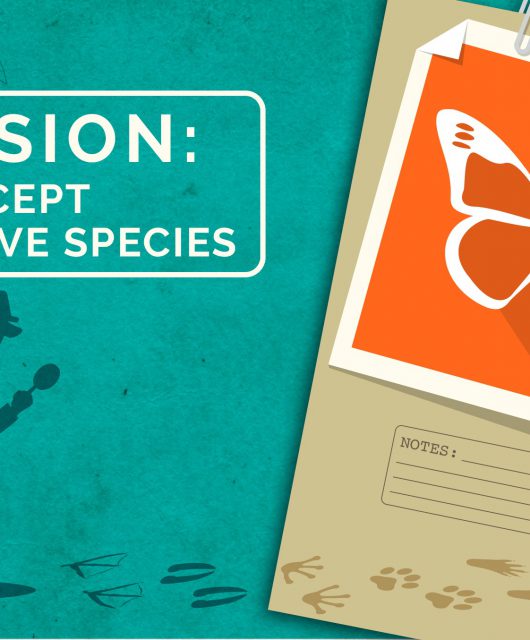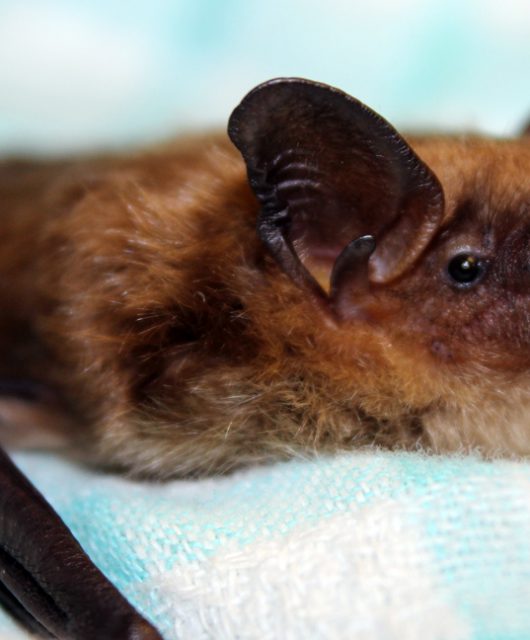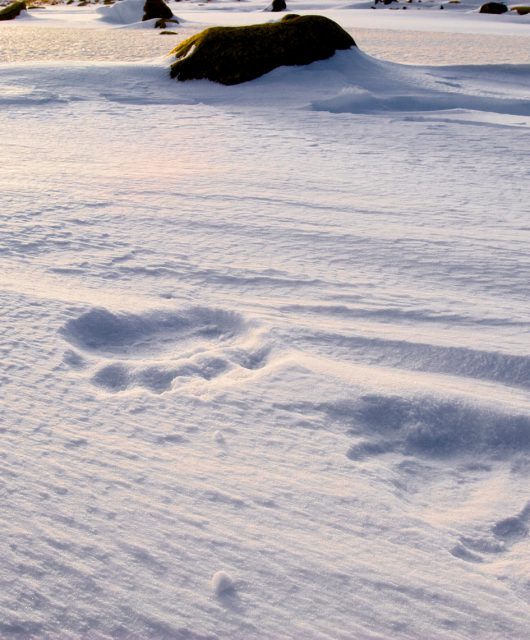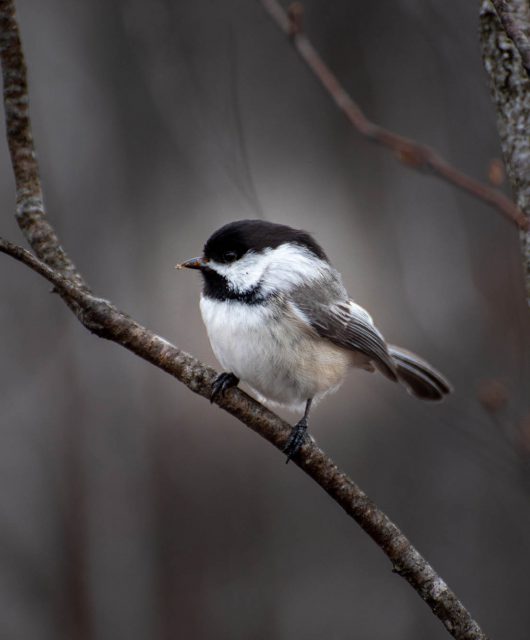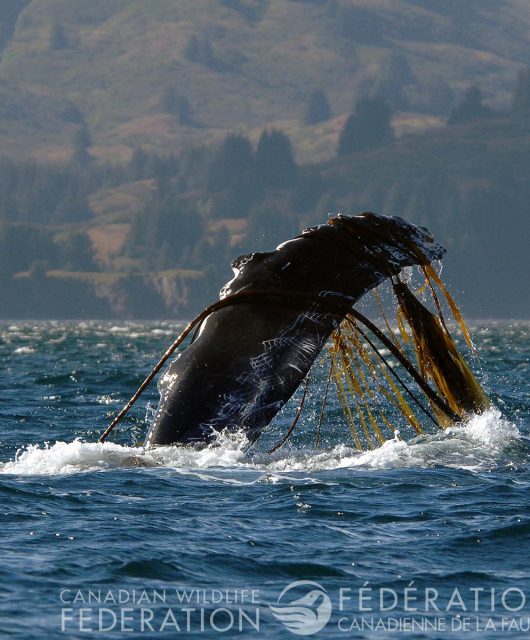We released our Big Brown Bats!!
If you haven’t been following the story, these hibernators were evicted last December from a 50-plus year roost. It was also their winter hibernacula. This fact alone made the untimely eviction particularly detrimental to their survival. However, with the help from the community, CWF supporters and the Rideau Valley Wildlife Sanctuary (RVWS), the big brown bats overwintered in special ‘bat fridges’ and were ready to be released in the spring.
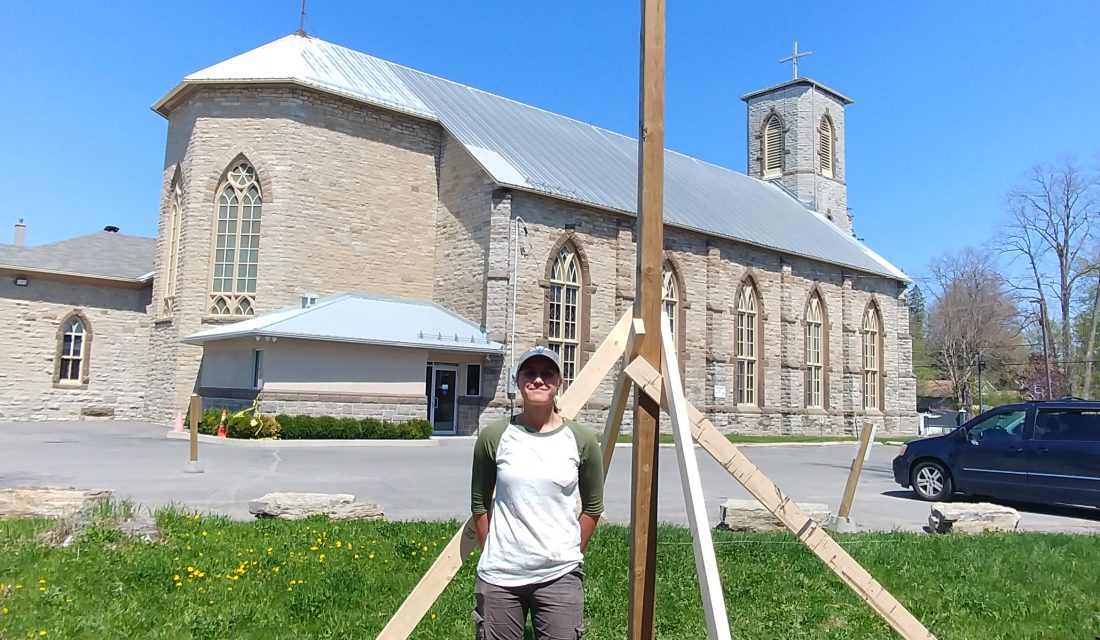
No Room
Unfortunately, the church management was unwilling to support our initiative to provide an alternative roosting site. This made mitigating the impact of this eviction particularly challenging. Ideally, we would have installed the bat houses on church property but instead had to find a suitable location near the church.
With the help of Mississippi Mills Mayor Shaun McLaughlin, and Calvin Murphy, Municipal Recreation Manager, the Canadian Wildlife Federation found a suitable location at the Almonte Curling Club, immediately beside the church.
Home, Sweet Home
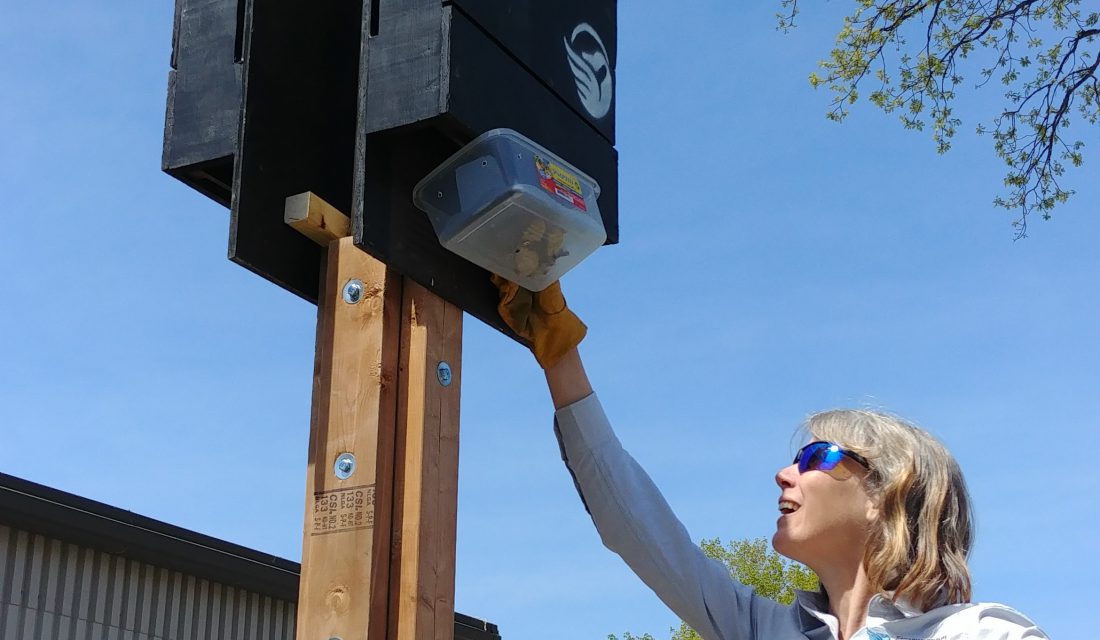 This spring, my colleagues and I went to Mississippi Mills, Ontario, to release the rescued bats that spent the winter with Linda Laurus and the RVWS.
This spring, my colleagues and I went to Mississippi Mills, Ontario, to release the rescued bats that spent the winter with Linda Laurus and the RVWS.
The bats were released into the bat houses without incident. They were friendly, chatting the whole time, and very excited to get back to their old stomping grounds. The Big Browns are now supporting the local ecosystem by keeping the night-flying insects in check.
In addition to the bat houses installed at the Almonte Curling Club, the Mississippi River Parkway Commission also voted to install a big bat condo at the Metcalfe Geoheritage Park. This area offers important foraging habitat for local bats. The installation will make a great engagement and educational piece for the community.
Nature’s Pesticide
It is very important for our communities to understand the role of bats. They are nature’s pesticide, saving the agricultural industry millions each year by eating pesky bugs. Also, it’s important to understand the role we all play in conserving them.
This installation represents a great opportunity to arrange informative sessions to educate the community on our local bat species and how to monitor roost activity. This way, individuals in the community develop the techniques to monitor and report on endangered species roosting on their own properties.
They Really Do Need Our Help
The majority of Ontario’s bat species are endangered, and the rest are on their way. Their population growth is too slow to compete with current and future stressors. We need to act. These alternative roosts are an important step in the right direction.
It is quite apparent that the Canadian Wildlife Federation could not have succeeded in our efforts to save these bats without the help of the RVWS, our donors, facilitators at the municipality of Mississippi Mills, and the local community. This story is a testament to a great and resourceful community that is happy to help during difficult times. Initiatives like this are what really makes a difference for species in need of a helping hand. The results from this community rescue have a direct and lasting impact on our local landscape.
Special thanks to: Linda Laurus (Director of the Rideau Valley Wildlife Sanctuary), Jefferson Drost (Homes4Wildlife), Pascal Meunier (Fire Chief, Mississippi Mills), Shaun McLaughlin (Mayor, Mississippi Mills), Calvin Murphy (Municipal Recreation Manager), Scott Newton (Mississippi River Power Corp.).

